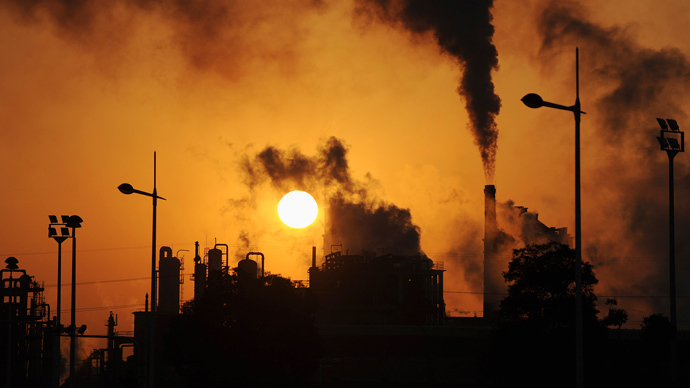

Scientists have referred to the past 12,000 years as the Holocene epoch, which is Greek for “entirely recent.” Its beginning was marked by a geochemical signal in Greenland’s ice cores showing the beginning of warmer and wetter conditions at the end of the last ice age. However, people are changing the planet so much that we may be entering a new epoch—The Anthropocene (or “The Age of Humans”).
Many scientists are turning to a new way to describe the time we live in because of the extreme impact that humanity’s domination of the globe has had on our biosphere. This may seem extreme, but it sounds rather justified once one considers how much we have changed the planet.
7 billion people create a massive amount of waste. And much of this waste seems like it may end up in surprising places (namely, the geological record). Some of it has formed into a new kind of rock, called “plastiglomerate.” It’s an amalgamation of plastic, volcanic rock, beach sand, seashells, and corals. And it is washing up on our beaches. Specifically, it has been found on every sandy sprawl across Hawaii (this is the only place that has, to date, had a comprehensive study).
Researchers from Western University in London, Canada recently discussed this material in a publication found in GSA Today.
Notably, some scientists think that this will be our geological legacy to the future. Paleontologist Jan Zalasiewicz of the University of Leicester in the United Kingdom, who was not involved in the study, states that this new discovery adds some credence to the idea that humanity has caused a new geological epoch—the Anthropocene. This era is a period characterized by humanity’s domination of other species and the globe at large: Mass deforestation, mass extinction, soaring levels of green house gasses, etc. If we combine plastic’s abundance with its persistence in the environment, Zalasiewicz asserts that there’s a good chance it’ll get into the fossil record. “Plastics, including plastiglomerates, would be one of the key markers by which people could recognize the beginning of the Anthropocene.”
Zalasiewicz is far from the first to make this claim. Because of the way that humans (along with all of our pollution, industry, and deforestation) are altering the planet (especially its climate), an increasing number of scientists are using the word “Anthropocene.” Paul Crutzen, a Nobel Prize-winning Dutch chemist, is credited with popularizing the term in 2000 when he used it in the Global Change Newsletter. More than 500 scientific studies have been published this year referring to the current time period as the Anthropocene.
The International Commission on Stratigraphy is the body that has the power to officially change the name of the epoch. In order for the name change to be approved, the committee will need to reach a consensus on the definition of Anthropocene and then determine how it should be classified in the international geological time scale. The Anthropocene Working Group hopes to have its proposal ready in time for the International Geological Congress in 2016.
Some scientists believe that “Holocene” is still an accurate name for the time period we’re living in. Others are still on the fence, asserting that there needs to be more evidence from what is in rocks before a name change can take place. What do you think? Have humans altered the planet enough to warrant a name change?
READ NEXT: 5 Kinds of Pollution (Illustrated with Images and Video)